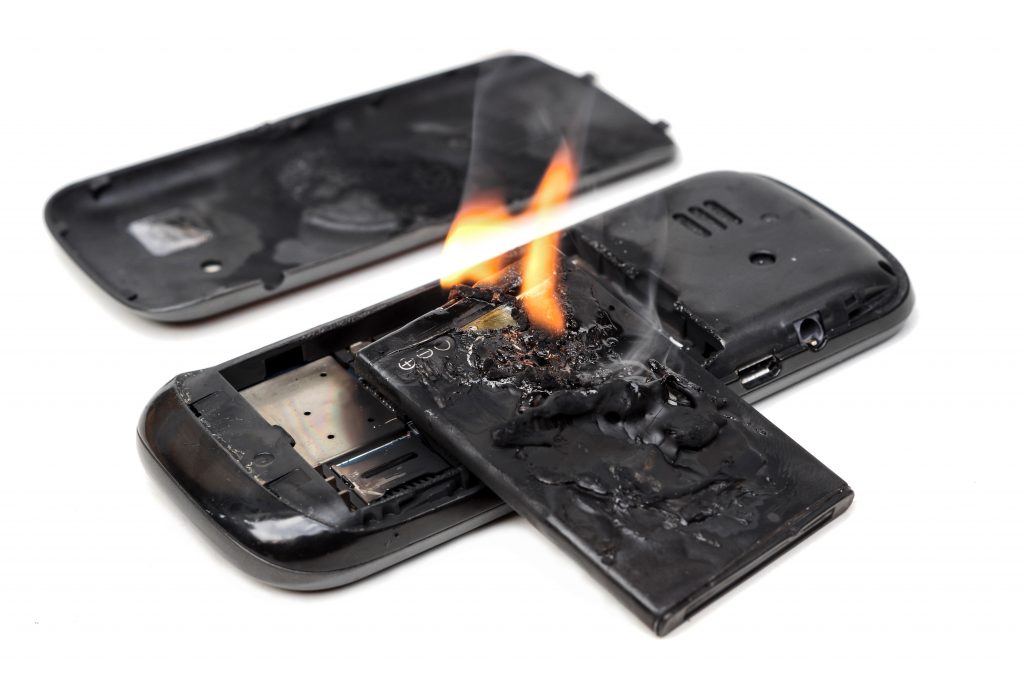
Every now and then, we hear stories about gadget batteries exploding incidents, sometimes causing harm to the unfortunate user. In one controversial case, Samsung has been forced to recall its Galaxy Note 7 smartphone models after concerns were raised that a small number of its handsets are shipping with defective batteries that may explode. Once again, dangerous lithium-ion batteries are back in the spotlight, but what actually causes a battery to go haywire?
Lithium-ion batteries seldom bulge or explode, but when they do, there are two leading causes. The first is a puncture, which might be caused by dropping your phone. A break in the thin compacted battery material between cells can produce an internal short circuit, leading to swelling and potential explosions. Alternatively, cheaper batteries can sometimes accidentally feature rare microscopic metal particles inside that might come into contact with other parts of the battery cell, also leading to a short circuit.
Excessive heat can again cause again internal short circuit within the battery, by breaking down the internal cells. However, this only usually occurs at very high temperatures, unless the battery is faulty. In other words, excess heat causes a reaction that accelerates the temperature increase. Eventually, this can lead to a fire or explosion.
Without knowing exactly what is causing issues with exploding phones, we can’t say precisely how to avoid potential problems. However, there are some tips to follow that can help protect yourself and your device from a disaster.
- Stop charging your phone it if becomes too hot. Allow your phone to cool down before charging it again and make sure that you don’t cover your phone to let heat escape properly.
- Stick to first-party chargers. Use the charger included in the box to make sure that your phone is receiving the optimal voltage and current. If you’re using a phone with a USB Type-C port or Quick Charge, it might be wise to stick with the cable that came in the box too.
- Be mindful of where you charge your phone. Avoid charging for long periods of time in really hot places, such leaving your phone on a car dashboard, next to a radiator, or in direct sunlight on hot days.
- If you do happen to notice your battery swelling, unplug your phone and remove the battery, but only if the battery is user-removable. Don’t attempt to dispose of the battery or device in the trash. Always get rid of your batteries at authorized disposal facilities or some electronics retailers, such as Best Buy, that offer battery recycling services.
- If your battery and/or device is damaged as a result of a swollen or exploded battery, take your device to the retailer that you purchased it from or get in contact with the manufacturer. A replacement battery or device will usually be issued, especially if you have a warranty.

Leave a Reply